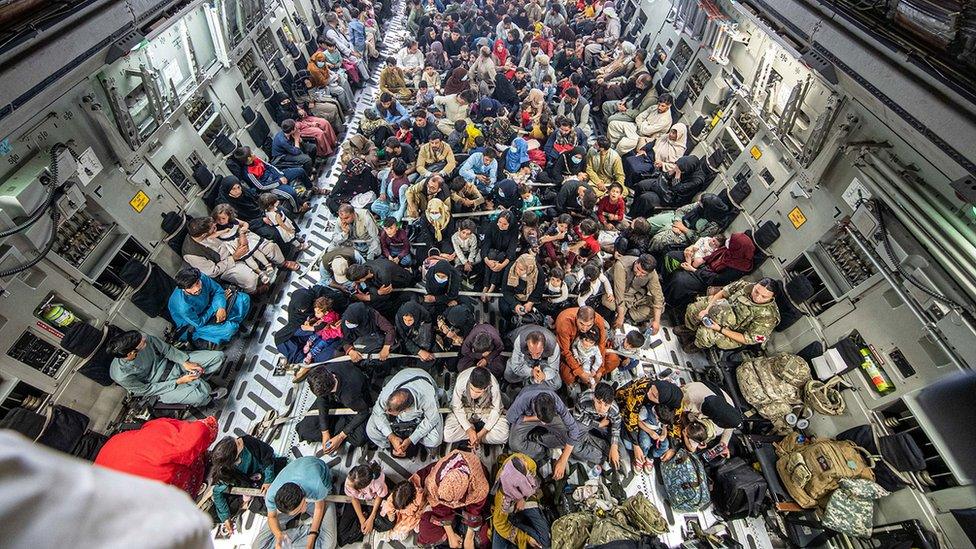Afghan dad feared family would die in Channel crossing
- Published
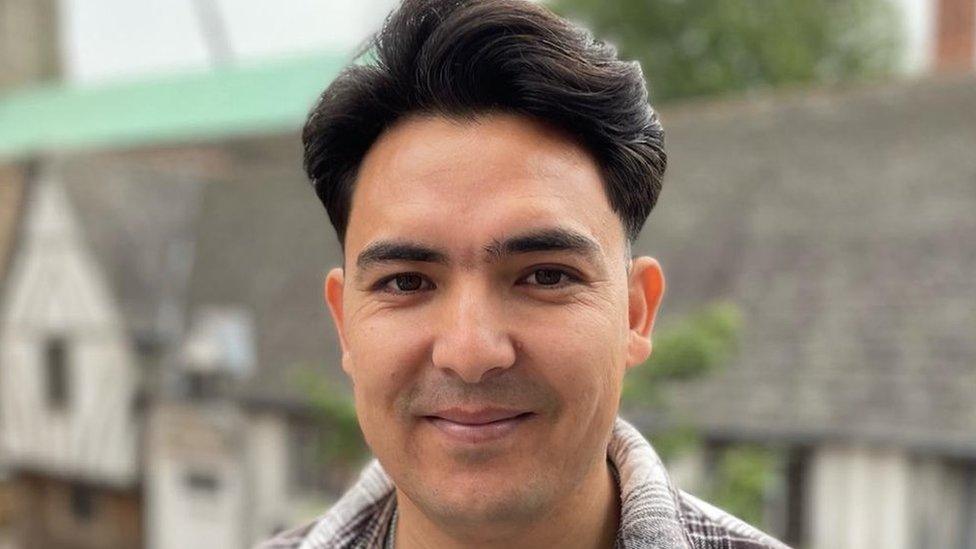
Journalist Qadir Bayat said he felt he had no option but to cross the Channel with his family illegally
An Afghan dad has said he had no choice but to cross the Channel with his family in a small boat, but urged others not to take the same risk.
Journalist Qadir Bayat said he was forced to flee Afghanistan after he was placed on a Taliban wanted list.
He hoped his family would get visas to come to the UK, as he had been working for a UK company.
He then smuggled his family into the UK among 66 people on a small boat - and genuinely feared they would all die.
Mr Bayat, who worked for a London-based channel and is now seeking asylum in the UK, said: "We were inside the water, when the waves were high, all the children were crying.
"We were thinking 'we will die, we will die'. It was a horrible experience.
"My advice is never take this decision because this way is very dangerous. You don't know if you will arrive in the UK or not."
Mr Bayat had a high-profile TV career and had covered stories ranging from Afghan politics to Valentine's Day for an international news channel.
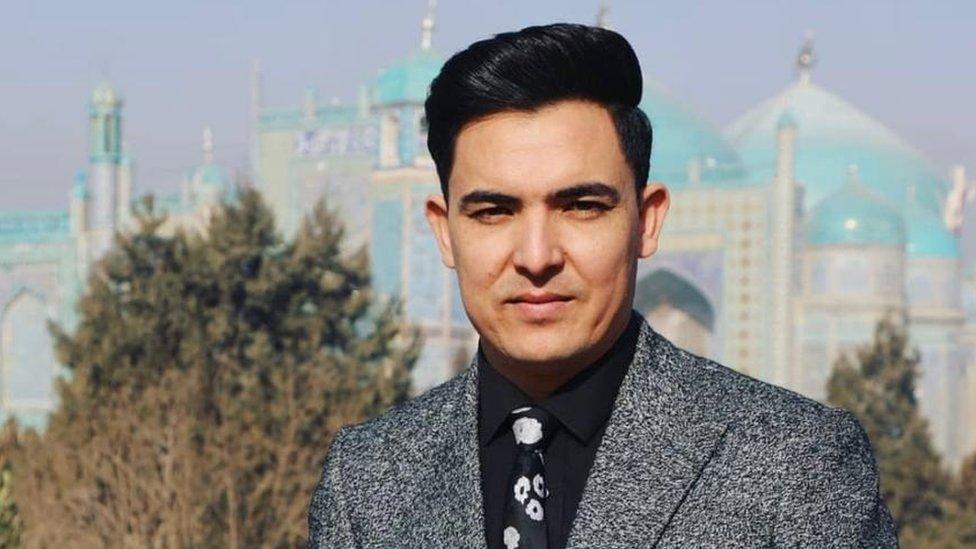
Mr Bayat says he is keen to resume work as a journalist and is working on improving his English
But he said his reports on the Afghan military put his name on a "wanted list".
"The Taliban came to my home and my office," Mr Bayat added. "My name was included on that list. Therefore I had to run away from Afghanistan."
Mr Bayat tried to obtain a visa to bring his family to the UK, but could not obtain a relocation to his channel's London headquarters or secure travel to the UK through the Afghan citizens resettlement scheme.
He also could not apply for asylum, because he was not physically in the UK at the time.
Mr Bayat said he then felt he had no choice to cross the Channel with his family without travel documents, holding one of his sons in his arms while the other was sitting on his shoulder.
The family has been in the UK for more than a year waiting to see if their application for asylum will be granted. They are currently living in a hotel in Leicester.
Mr Bayat said he was aware of public concern surrounding illegal Channel crossings, and said he would not have made the trip himself if he felt he had another option.
He believes most people from Afghanistan who have arrived in the UK illegally feel the same.
He said: "Afghan people are human. I lost everything. The UK is the best choice for me because I worked with some media that were located in the UK, therefore I came here."
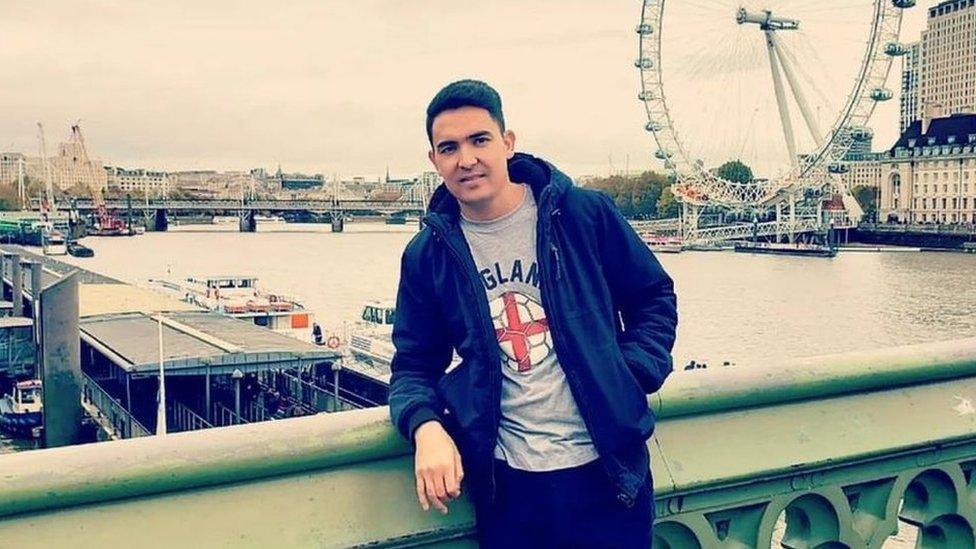
Mr Bayat said he was aware of public concern around illegal Channel crossings
There were 11,400 people from Afghanistan who made a claim for asylum in the UK in 2022, which is about 8% of the total number from the country who were seeking asylum in Europe, according to the Migration Observatory.
However, people who arrive in the UK in small boats will not have the right to claim asylum in future and could be detained and sent to Rwanda under the Illegal Migration Act, which also sets an annual cap on refugee numbers to stop local services being overwhelmed.
The UK Government says it will create capacity to expand "safe and legal" routes for refugees, including the Afghan resettlement scheme and the UK Resettlement Scheme (UKRS).
The Home Office says the UK already offers some of the most generous "safe and legal routes" and has a "proud history of providing protection who need it".
Mr Bayat said he was desperate to get a work permit so he could resume his journalism and film-making career, and is currently recording homemade news and sports reports, as a hobby, in his hotel room.
He said: "I like Leicester because Leicester is very beautiful. Leicester has kindly people. When I came in UK I thought all of my dreams died, but now I want to start a new life."

Follow BBC East Midlands on Facebook, external, on X, external, or on Instagram, external. Send your story ideas to eastmidsnews@bbc.co.uk, external.
Related topics
- Published27 October 2023
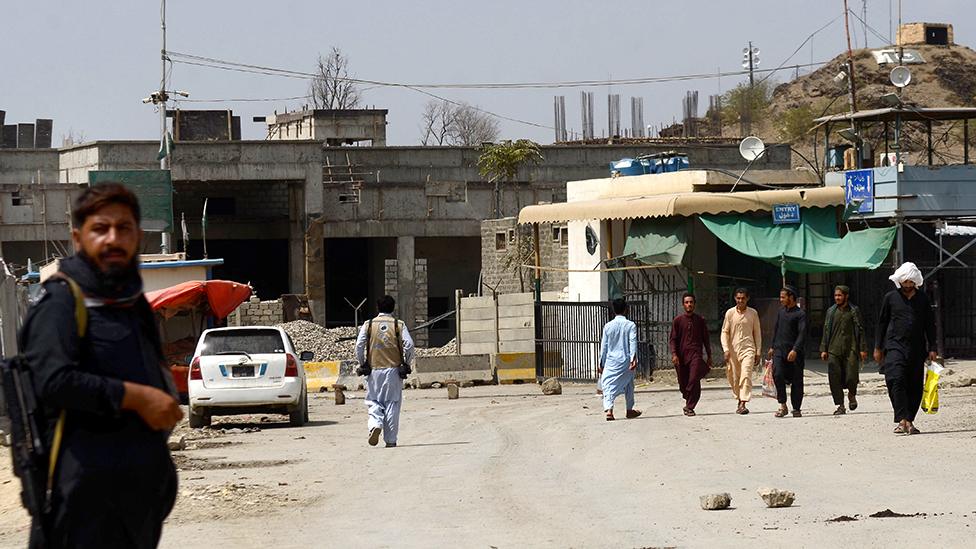
- Published13 October 2023

- Published4 August 2023
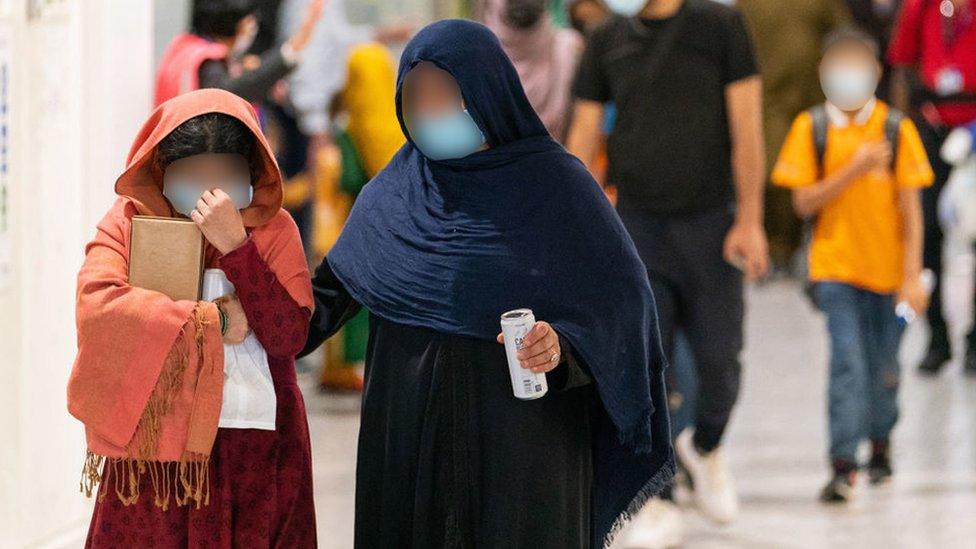
- Published12 July 2023
